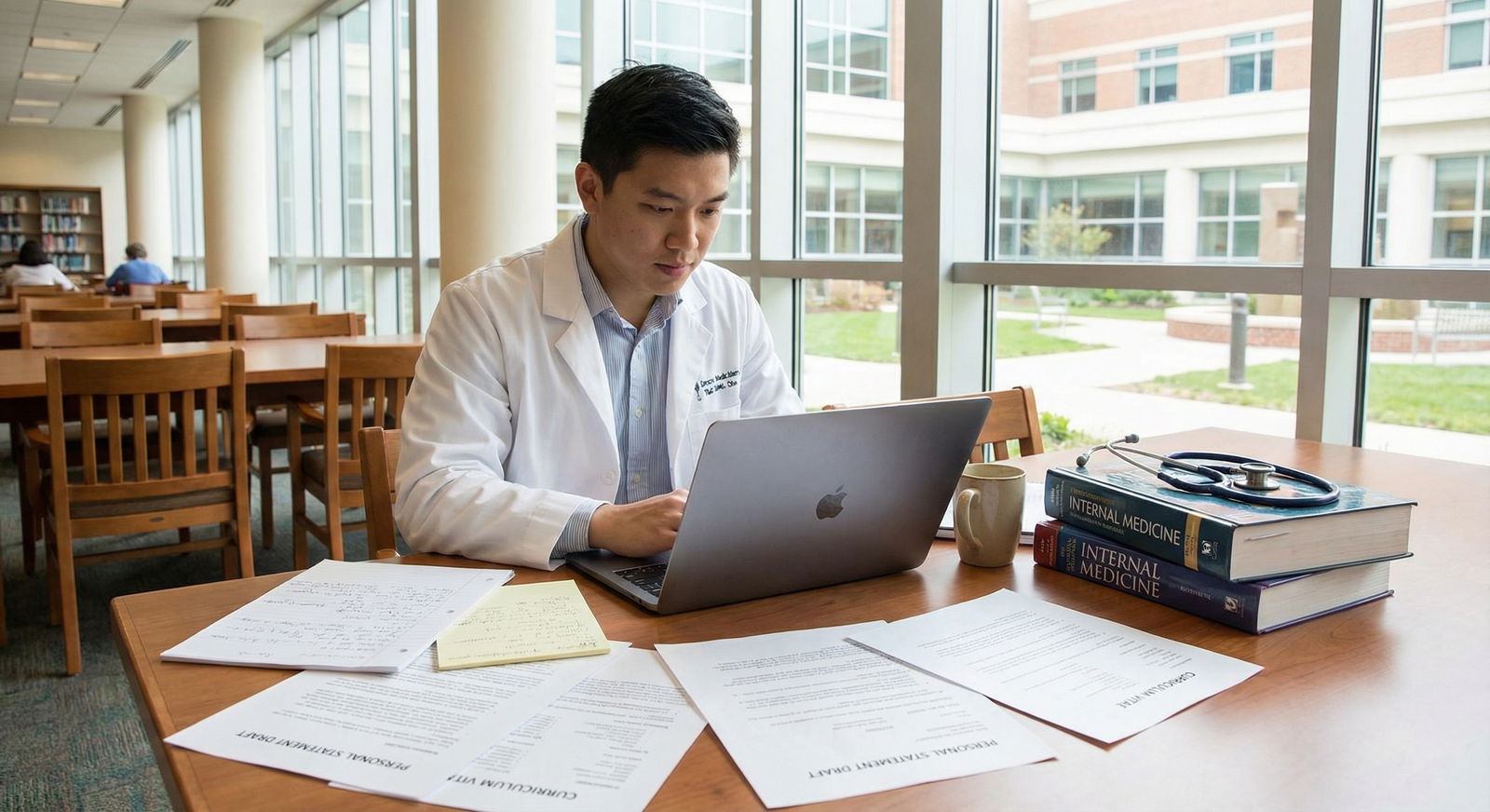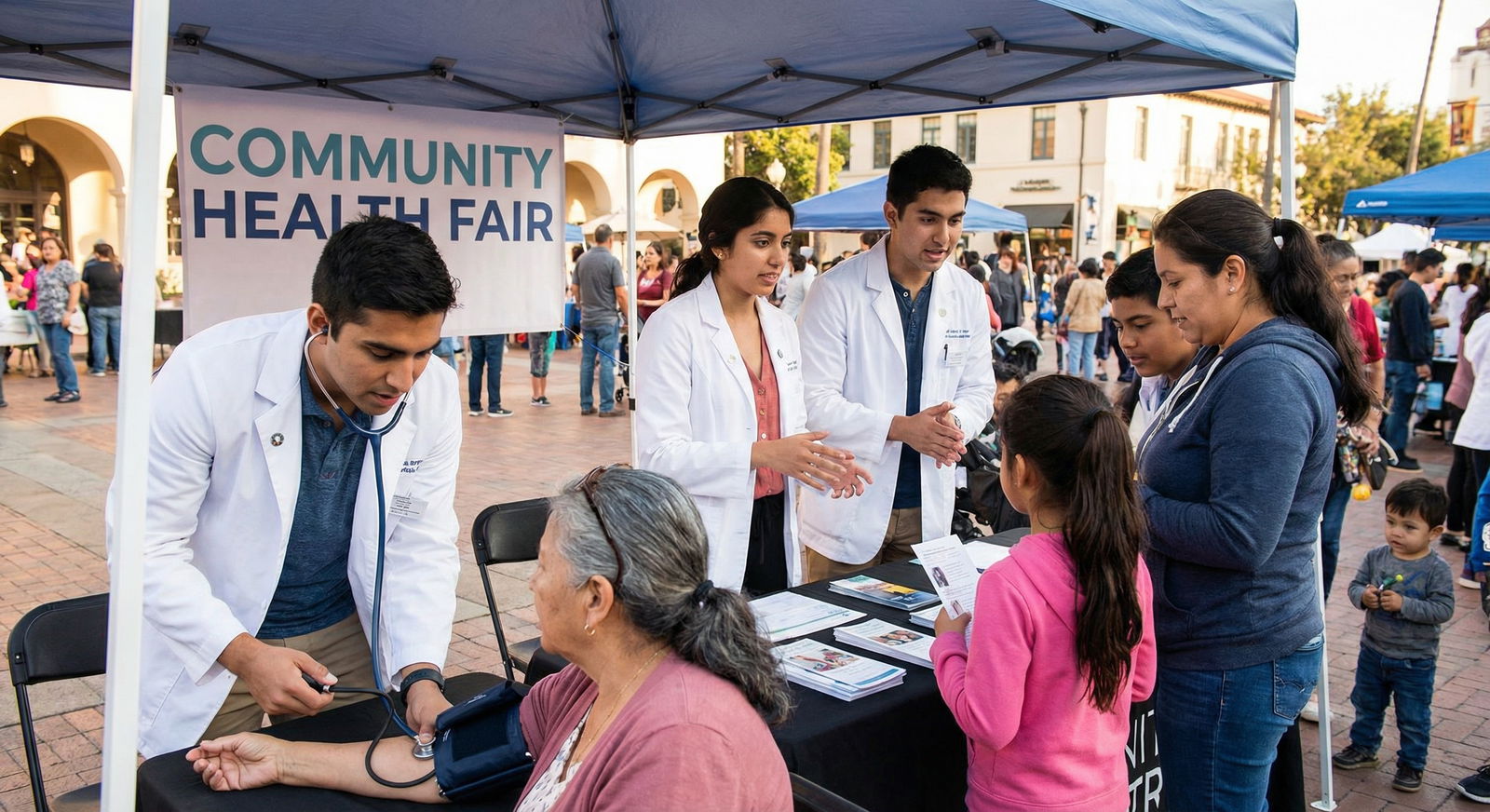
Elevate Your Profile: Essential Components of a Winning Residency Application
Navigating the Residency Application process can feel daunting, especially when you’re balancing rotations, exams, and personal commitments. A strong residency application is far more than a list of scores and credentials; it is a cohesive, compelling portrait of who you are as a developing physician, what you value in patient care, and how you will contribute to a program’s culture and the broader medical community.
This guide breaks down the essential components of a winning residency application and offers practical, step-by-step strategies to help you elevate your profile and improve your chances of a successful match.
Understanding What Makes a Strong Residency Application
A successful residency application is the culmination of years of Medical Education, self-reflection, and deliberate planning. Residency programs are not just looking for the “smartest” applicants; they are looking for colleagues—people they will work with at 2 a.m. on call, trust with vulnerable patients, and mentor into independent practitioners.
What Program Directors Are Looking For
Most program directors evaluate candidates across several broad domains:
- Academic readiness: Can you handle the clinical and cognitive demands of residency (USMLE/COMLEX scores, transcript, MSPE)?
- Clinical competence and professionalism: How do you perform on the wards? Do you show reliability, communication skills, and empathy (Clinical Experience, evaluations, Letters of Recommendation)?
- Fit with the specialty and program: Do your interests, values, and personality align with the specialty and the program’s mission (Personal Statement, interview, experiences)?
- Potential for growth and contribution: Will you contribute to research, quality improvement, teaching, leadership, or community engagement (research, leadership roles, extracurricular activities)?
Understanding these priorities helps you frame each portion of your application strategically, rather than treating components as isolated tasks.
Crafting a Powerful Personal Statement for Residency
Your Personal Statement is often the first narrative impression you make on a program. It’s your chance to turn a list of activities into a meaningful story that explains who you are as a physician in training and why you belong in that specialty.
Goals of an Effective Personal Statement
An effective Personal Statement should:
- Explain why you chose your specialty and what sustains that interest.
- Demonstrate how your experiences have shaped your clinical identity.
- Convey your values, work ethic, and approach to patient care.
- Show how you fit with residency training and your long-term goals.
- Be memorable, concise, and reflective—not a rephrased CV.
Key Components of a Strong Personal Statement
1. Authenticity and Voice
Avoid generic clichés like “I’ve always wanted to help people.” Instead:
- Use concrete stories to show, not tell, your qualities.
- Write in a voice that sounds like you—professional but personal.
- Acknowledge challenges you faced, but focus on growth and insight rather than self-pity.
Example:
Instead of: “Working in the homeless clinic was eye-opening.”
Try: “At the homeless clinic, I met Mr. D, who carried all his belongings in a backpack and still apologized for ‘taking up my time.’ Managing his uncontrolled diabetes in the context of food insecurity taught me that effective internal medicine demands as much advocacy and resource navigation as it does pharmacology.”
2. Clear Structure and Flow
A useful structure:
Introduction (Hook):
- A focused clinical vignette, turning point, or defining experience.
- Keep it short—3–5 sentences—and tie it explicitly to your specialty.
Body Paragraphs:
- Highlight 2–3 experiences (Clinical Experience, research, leadership, community work) that built your skills and confirmed your specialty choice.
- Reflect on what each experience taught you about yourself and patient care.
Conclusion:
- Link your past to your future: specialty goals, areas of interest (e.g., hospital medicine, outpatient care, academic medicine, underserved populations).
- Explain what you hope to gain from residency and how you plan to contribute.
3. Reflection Over Description
Residency programs value insight. Don’t just list what you did—analyze what it meant:
- What did you learn about patient care, systems of care, or yourself?
- How did a difficult interaction shape your communication style?
- How did a research project change how you think about evidence-based practice?
A simple test: if someone else in your class could copy and paste your statement with just a few name changes, it’s probably too generic.
Practical Tips for Writing and Revising
- Start early: Aim for a first draft 3–4 months before ERAS opens.
- Seek feedback from multiple perspectives:
- A mentor in your specialty (content and specialty fit)
- A peer or friend (clarity and readability)
- Someone who doesn’t know you well (overall impression)
- Avoid red flags:
- Overly negative commentary about prior institutions or colleagues
- Over-disclosure of personal issues without clear resolution or insight
- Excessive focus on a single story without broader context
- Proofread carefully: Typos and poor grammar suggest carelessness.
Letters of Recommendation: Building Credible Support
Strong Letters of Recommendation (LoRs) validate your performance, professionalism, and readiness for residency. They allow faculty and supervisors to advocate for you as a future colleague.

Choosing the Right Recommenders
Aim for letters that are:
- Specialty-relevant:
- Most programs prefer at least 2–3 letters from physicians in your chosen specialty.
- From people who know you well:
- A detailed letter from a mid-level academic attending who worked closely with you is usually more valuable than a generic letter from a famous name.
- Based on substantial Clinical Experience:
- Prioritize attendings from core or sub-internship rotations, audition electives, or longitudinal clinics.
Consider including:
- 1–2 letters from your target specialty
- 1 letter from another core rotation (e.g., medicine for surgery applicants, pediatrics for family medicine) that speaks to transferable skills.
- A research mentor letter only if they know you well and can comment on your work ethic, critical thinking, and reliability.
How to Set Your Recommenders Up for Success
Provide:
- Your updated CV and, if ready, your draft Personal Statement.
- A brief summary of your interactions with them (e.g., “I was on your inpatient team in March, followed 5 patients daily, and presented on COPD management.”).
- A short bullet list of qualities or experiences you hope they might highlight (e.g., teamwork, patient communication, initiative).
Ask:
- “Do you feel comfortable writing a strong, positive letter of recommendation for me?”
This wording gives them an opening to decline if they cannot be strongly supportive.
Timing and Professionalism
- Ask at least 6–8 weeks before your LoR deadline.
- Gently remind them 2–3 weeks before the submission date if needed.
- Always thank them—verbally, by email, and ideally with a follow-up note updating them on your Match outcome.
Building a Competitive Residency CV
Your residency CV transforms your experiences into a structured, digestible narrative. It supports everything in your application and often guides interview questions.
Essential Sections of a Strong Residency CV
Organize your CV clearly, typically in this order:
- Contact Information
- Education (undergraduate, medical school, additional degrees)
- Clinical Experience
- Can include sub-internships, away rotations, significant longitudinal clinics.
- Research Experience
- Publications, Presentations, and Posters
- Leadership and Teaching
- Volunteer and Community Service
- Awards and Honors
- Professional Memberships
- Skills and Interests (brief, but can humanize you)
Highlighting Clinical Experience Effectively
Under Clinical Experience, go beyond listing rotation titles:
- Include dates, institution, and role (e.g., Sub-intern, Acting Intern).
- Add 1–3 concise bullet points focusing on:
- Level of responsibility (e.g., managed 4–6 patients daily, wrote daily notes).
- Skills gained (e.g., presented on rounds, participated in family meetings).
- Any notable contributions (e.g., developed patient handout, led QI project).
Common CV Pitfalls to Avoid
- Overcrowding: Keep it focused; prioritize quality and relevance.
- Inconsistency: Use uniform formatting, tense, and style.
- Inflated descriptions: Be accurate; assume anything you write may be discussed in detail during interviews.
Aim for clarity and professionalism over flair—your CV is a structured snapshot, not a creative writing exercise.
USMLE Scores and Academic Metrics: Context and Strategy
While standardized test scores are only one part of the Residency Application, they remain important markers of academic readiness.
Understanding the Role of USMLE/COMLEX Scores
Programs often use scores to:
- Screen large numbers of applications.
- Assess likelihood of passing in-training and board exams.
- Get a sense of cognitive preparation and test-taking stamina.
For USMLE Step 1 (now Pass/Fail) and Step 2 CK (scored), programs may focus more heavily on:
- Step 2 CK performance
- Trends over time (improvement versus decline)
- Consistency with your transcript and evaluations
If You Have Strong Scores
Maximize this advantage by:
- Ensuring your application is submitted early and complete.
- Applying to a range of programs including some more competitive ones.
- Using your secure test performance as a foundation—not a reason to neglect other components like Clinical Experience, Personal Statement, and LoRs.
If Your Scores Are Less Competitive
You can still build a compelling application:
- Strengthen your clinical narrative:
- Outstanding Clinical Experience, particularly in sub-internships or audition rotations, can significantly bolster your profile.
- Excel in Step 2 CK if Step 1 was weaker:
- A substantial improvement can reassure programs about your progress and test-taking ability.
- Address indirectly, if needed:
- You generally don’t need to explicitly explain modest scores in your Personal Statement unless there were unique, well-defined circumstances.
- If addressed, focus on what you changed (study strategies, time management) and how you’ve improved.
Balance is key: program directors often say they prefer a well-rounded applicant with solid (not perfect) scores and strong clinical performance over someone with excellent scores but weak interpersonal or clinical skills.
Maximizing Clinical Rotations, Sub-Internships, and Audition Electives
Clinical Experience is the backbone of your application. How you show up on the wards often matters more than a few points on an exam.
Making the Most of Core and Sub-Internship Rotations
Treat every rotation as both a learning opportunity and a live audition:
- Be reliable: Show up on time, follow through, and communicate clearly.
- Think like an intern: Anticipate plans, follow up on labs, consider discharge needs.
- Engage actively: Ask questions that show curiosity, not perform for the sake of asking.
- Seek feedback early: Ask mid-rotation, “Is there anything I can do differently to be more effective for the team?”—and then act on it.
Strong rotation performance often leads directly to powerful Letters of Recommendation and specific positive comments in the MSPE.
Audition Rotations and Away Electives
Audition rotations (especially in certain specialties like orthopedics, EM, and neurosurgery) can be high-yield and high-pressure.
To excel:
- Learn the culture of the program (academic vs. community, patient population, research emphasis).
- Demonstrate genuine interest—ask about educational structure, resident life, and program strengths.
- Be consistent: programs are watching for sustained professionalism, not one “heroic” day.
Even if you don’t end up matching at that specific program, a strong performance there can enhance your Letters of Recommendation and your overall narrative in that specialty.
Research, Scholarship, and Academic Productivity
Research experience is particularly valuable for competitive specialties and academic programs, but it can benefit applicants in any field by showcasing critical thinking and perseverance.
Types of Research and Scholarly Activity
You don’t need a first-author NEJM paper to impress programs. Valid forms of scholarship include:
- Clinical research (retrospective chart reviews, prospective studies)
- Quality improvement projects
- Case reports and case series
- Educational research or curriculum development
- Public health and community-based projects
Building a Research Profile That Helps Your Application
- Start early: Get involved by the second year of Medical Education if possible.
- Aim for completion: A meaningful poster, presentation, or publication is stronger than several unfinished projects.
- Clarify your role: Be specific about what you did—data collection, analysis, manuscript drafting, literature review.
- Link to your specialty: If possible, align at least some of your projects with your target field (e.g., dermatology for derm applicants, neurology for neurology applicants).
During interviews, be prepared to discuss your research process, challenges you faced, and what you learned—not just the results.
Extracurricular Activities, Leadership, and Community Engagement
Residency programs want well-rounded physicians who can contribute to team culture, patient advocacy, and institutional improvement.

Why Extracurriculars Matter
Quality extracurricular experiences can:
- Demonstrate leadership (student government, interest group president, committee work).
- Highlight commitment to underserved communities (free clinics, outreach programs).
- Show teaching and mentorship abilities (tutoring, peer teaching, near-peer mentorship).
- Reveal resilience and balance (sports, arts, long-term hobbies).
Programs read these sections to understand who you are outside of the hospital and how you may contribute to the residency community.
Choosing and Presenting Your Activities Strategically
- Emphasize longitudinal commitments over short, one-time events.
- For each major activity, describe:
- Your specific role and responsibilities.
- Any measurable outcomes (e.g., “coordinated health fair that served 120 community members”).
- Skills gained that are relevant to residency (leadership, teamwork, communication).
Don’t underestimate the value of non-medical interests. A long-standing involvement in music, sports, or advocacy can make you memorable and can lead to meaningful interview discussions.
Putting It All Together: A Cohesive, Compelling Application
The most impactful Residency Applications are cohesive: the Personal Statement, Letters of Recommendation, CV, Clinical Experience, and extracurricular activities all support the same underlying story.
Steps to Create a Unified Narrative
- Clarify your core themes:
- Examples: commitment to underserved care, passion for teaching, interest in systems improvement, love of complex inpatient medicine, dedication to longitudinal primary care relationships.
- Check for alignment:
- Does your Personal Statement highlight the same themes that appear in your CV and LoRs?
- Do your Clinical Experiences and Research logically support your stated goals?
- Identify and address gaps:
- If you lack formal research, emphasize quality improvement, teaching, or community work.
- If your Clinical Experience is light in your target specialty, consider additional electives or observerships.
By aligning each component with your overarching professional identity, you help programs see exactly who they are inviting into their residency.
Frequently Asked Questions About Strong Residency Applications
Q1: What is the single most important component of a residency application?
There is no true “single” most important component, because programs evaluate applications holistically. However, Clinical Experience, strong Letters of Recommendation, and your Personal Statement often carry major weight in signaling specialty fit and readiness. Solid USMLE/COMLEX scores are necessary for many programs’ screening, but they rarely guarantee success on their own.
Q2: How can I strengthen my residency application if I’m starting late (e.g., end of third year)?
Focus on high-yield, realistic improvements:
- Prioritize strong performance on upcoming rotations and sub-internships, especially in your chosen specialty.
- Build relationships that can lead to specific, supportive Letters of Recommendation.
- Invest time in a thoughtful, well-edited Personal Statement.
- If possible, complete at least one focused project—a case report, QI project, or small research endeavor—rather than starting multiple large projects you can’t finish.
- Apply smartly: include a balanced list of programs across reach, realistic, and safer options.
Q3: Should I address personal challenges (e.g., leave of absence, exam failures) in my Personal Statement?
It depends on the context:
- If the issue is brief, clearly documented (e.g., one-time illness with clear recovery), it can often be left to the MSPE and program interpretation.
- If not addressing it could lead to major confusion or concern, a brief, mature explanation can be helpful:
- Take responsibility where appropriate.
- Emphasize what you learned and concrete changes you made.
- Avoid over-detailing or emotional oversharing.
If you’re unsure, discuss your specific situation with a faculty advisor or dean.
Q4: How important are extracurricular activities compared to research and Clinical Experience?
Clinical Experience and academic performance usually carry the most weight. Between research and extracurriculars, the relative importance depends on the specialty and the type of program:
- Highly academic or competitive specialties often place more value on research and scholarly work.
- Many programs, especially in primary care and community-based settings, value long-term community engagement, leadership, and teaching. In all cases, meaningful extracurricular activities that demonstrate professionalism, empathy, leadership, and resilience can significantly enhance your overall profile.
Q5: How many programs should I apply to for a safe match strategy?
The ideal number varies by specialty, competitiveness of your profile, and whether you are an AMG, DO, or IMG. General principles:
- More competitive specialties (e.g., dermatology, orthopedic surgery) often require a larger number of applications.
- For moderately competitive fields, many applicants apply to 30–60 programs, but individual needs vary.
- Use specialty-specific data from NRMP, your school’s advising office, and prior match outcomes from graduates similar to you to refine your list. Quality and fit also matter—don’t rely solely on sheer volume.
By strategically developing each component of your Residency Application—Personal Statement, Letters of Recommendation, CV, scores, Clinical Experience, research, and extracurricular activities—you can present a coherent, compelling picture of yourself as a future resident. Thoughtful planning, honest self-reflection, and consistent effort over time are your best tools for elevating your profile and maximizing your chances of a successful match.



















